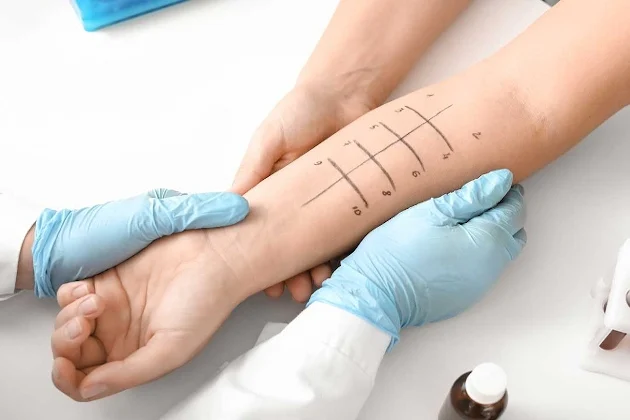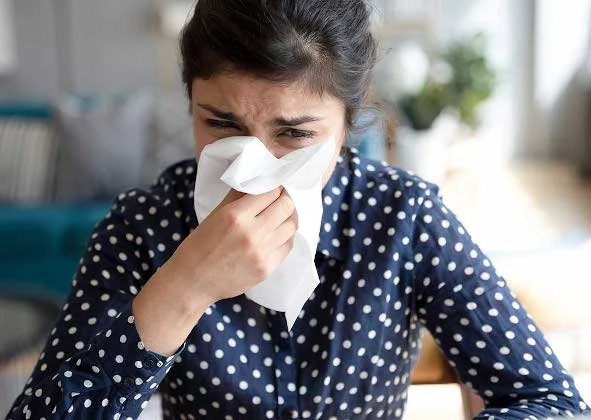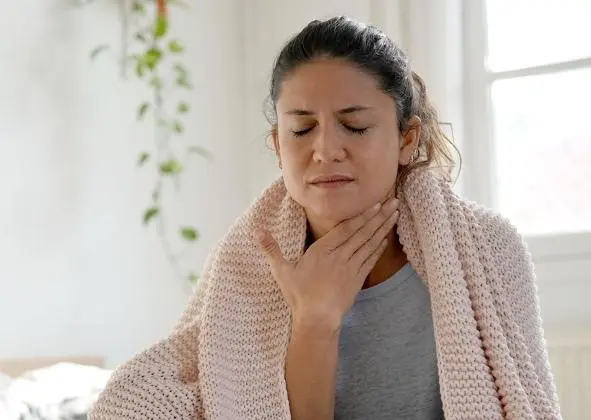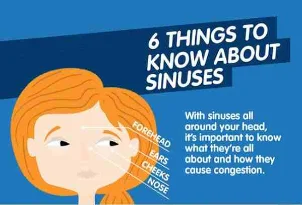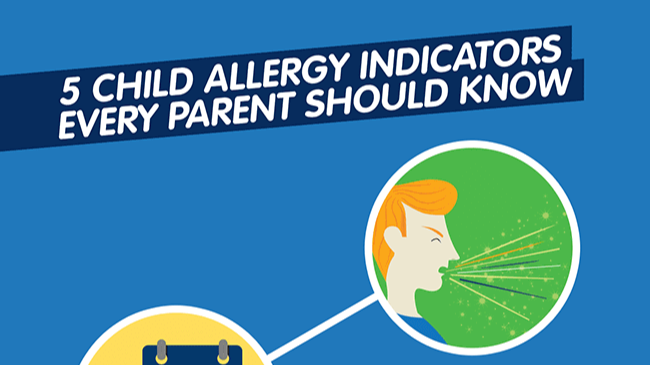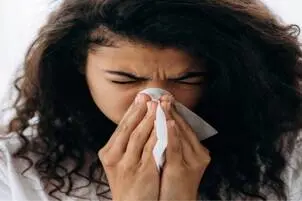Symptoms and Causes of Sinus Pressure
Your sinuses are a series of connected hollow spaces behind your cheekbones, forehead, and nose. When your sinuses are healthy and not irritated, they produce thin mucus that drains through your nasal passageways. 1
However, these hollow spaces can occasionally swell up, blocking your mucus from draining properly. When this happens, you may feel symptoms such as: 2
sinus headache
tenderness of the face (particularly under the eyes or at the bridge of the nose)
frontal headaches
nasal stuffiness or congestion
pain in your teeth or jaw
Sinus headaches are often mistaken for migraines as both conditions cause pain in similar locations of the face. However, migraines may happen due to factors such as stress and hormonal imbalances. Headache from Sinus Pressure, on the other hand, is caused by pressure around the face due to inflammation in your sinus tissues. 3
This inflammation can happen for several reasons: 4
Seasonal allergies: allergy symptoms such as sneezing, congestion, and runny nose can irritate your sinuses, causing them swell.
Nasal polyps: these are abnormal growths in the nose or sinuses, blocking mucus from draining properly.
Deviated septum: an imbalance in the size of the nasal passageways which may make draining mucus difficult.
Cold or a flu: bacteria and viruses can cause your sinuses to swell and create pressure or aches in your face.
Other factors including air pollution, fumes, or a change in air pressure can also cause your sinuses to become blocked, triggering swelling and pressure, leading to a sinus infection.
How to Prevent and Relieve Sinus Pressure
The best way to prevent sinus pressure is to avoid situations that trigger your sinuses from becoming blocked. This means staying healthy from a cold or the flu, and avoiding environments that can make your sinuses flare up. If you suffer from allergies, taking over-the-counter (OTC) medications such as Reactine® Complete Sinus + Allergy can help clear up your nasal passageways and relieve symptoms such as itchy, watery eyes, runny nose, stuffiness and sneezing; when your sinuses are less irritated and inflamed, your risk of getting a sinus infection and experiencing sinus pressure will also be reduced.
If you develop sinus pressure, there are some home remedies that can provide fast, temporary relief. Some options include: 5
Drinking plenty of liquids – hydration is your friend.
Breathing in warm steam to keep your mucus thin and from drying out.
Using a saltwater spray to flush out excess mucus and pathogens trapped in your sinuses.
Using a warm compress gently against the areas of your face where pressure is building up.
Blowing your nose gently, one nostril at a time when trying to unblock your nose. Blowing too aggressively can further irritate and inflame your sinuses, causing your sinus pressure to get worse.
Managing Sinus Pressure Caused by Allergies
One of the most common causes of sinus pressure is due to allergies. Unfortunately, this may make avoiding sinus pressure difficult, especially when allergy season hits. However, you can still rely on Reactine® Complete Sinus + Allergy, formulated for fast relief of seasonal and year-round allergy symptoms including sinus congestion, nasal congestion, and stuffiness in addition to common allergy symptoms like stuffiness, sneezing, runny nose, and itchy and watery eyes.
Sinus pressure can develop for many different reasons, and if left untreated, may affect your quality of life. Although the best remedy is to avoid triggering your sinuses, there are many OTC medications and home remedies available to help. It’s also important to understand your symptoms and differentiate them from similar conditions like migraines or regular headaches, as the most effective treatments will differ. If you are still unsure of your symptoms or which OTC medication to take, consult your doctor or local healthcare practitioner. Remember to always take OTC medications as directed on the label.

